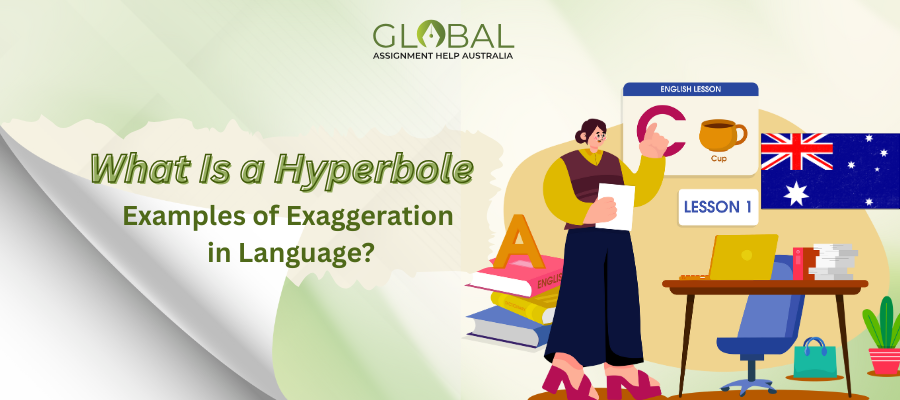 Offers
New
Order Now
Offers
New
Order Now
You must have heard of plagiarism, mustn't you? There are ways to avoid it, like original research or fresh ideas, but sometimes, you must cite other works to develop knowledge. For those of you, knowing how to write a bibliography is important. It is a section, aspect, and a ticket to escape from the duplicacy claim. Many of you cite and take information from various websites, and you think it is all good and smiling. However, you are giving them an invitation to question your work. Instead, if you cite their work, it might not happen. The bibliography is such an aspect that helps you avoid such an adverse situation. The issue is your lack of knowledge and understanding of its concept.
It is important to have a proper idea before you implement any aspect. Thus, this blog discusses the concept behind the citation process. Now, it is best to put everything else aside and read this blog for some valuable details about what is a bibliography.
With the advancement of new technologies, researchers have explored several topics and added new information. When you study the same field, you also encounter these topics. Sometimes, you reach out to various sources to cite details related to your subject. For that, you need to provide proper links, and a bibliography is all about that.
Hence, you can define it as “A process where you mention and provide information related to all the books, articles, journals, and websites you explored to collect data.”
This definition reflects and explains its entire process but in a summarised manner. However, with a Harvard style bibliography, you must consider many other things when you draft that. The following pointers cover them to help you draft it accurately:
It must provide:
Aside from the above considerations, the bibliography includes some general guidelines that you must follow:
Some general guidelines to remember:
These guidelines help you follow the correct procedure; you know how to write a bibliography. However, you cannot learn everything by just theory reading. Hence, you must observe the following illustration for better knowledge:
|
A Bibliography Example |
|
Zidane, Zinedine, How I Conquered Champions League, France, France: 433 Web Interview. 2020. |
This example shows that the bibliography covers each area and the research material you use to develop your details. However, it contains several styles and composition methods that you must know. When your professor assigns projects, they also mention the specific citation style they want in the content. But how can you correctly draft the bibliography section if you are unaware? Thus, it is best to study them in the following section.
There is a general process that you must follow to draft a reference section in your content. However, every citation style is significant as it relates to different disciplines. So, which one is specific to the subject is something you must know, and for that, you must develop knowledge. The term bibliography contains several styles, and it further contains two groups:
Let's study a bit about these citations and which styles they consist of.
In this bibliography citation, you format your references by starting with the author's last name. Moreover, you mention the publication year and the respective page number(s) at the end. This citation style consists of two categories:
Modern Language Association, or MLA, in short, follows the author-page style because it focuses more on page numbers. The discipline requires heavy quotations, which signifies in-depth text inspection. It also concentrates on a specific text and section.
The APA(American Psychological Association) and Chicago Bibliography styles use the author-date style because it focuses on the updated part of the information. It means that you must provide information about how recent your information is. You can present this information through the date of publication and the date of copyright.
You must have noticed some numbers at the end of a section in some texts. Such written documents follow the numbered style citations in their document. These numbers indicate a specific source listed at the end of the overall text. It is mostly prepared alphabetically, so if your discipline requires numbering, you can follow this bibliography style.
It uses footnotes or end notes where you mention the specific reference. Chicago Notes is the pattern that relates to this one. Vancouver styles like IEE, AMA, CSE Citation Sequence and Name. When a document consists of a higher number of studies, you use this bibliography pattern.
These are some styles and categories you can refer to when citing your document. However, you may make mistakes while citing the sources, which results in poor results, as professors may see that you have duplicated the content. Therefore, the structure of your style is equally important as it helps you answer how to write a bibliography for a website or in academics. Hence, the below section covers the correct format for you to know and remember.
Book Your Writer Now!Learning what kind of reference style is important, but this isn't the full step. It is the beginning of the entire process, and you must know that it follows a specific structure. That is where you make mistakes, as you cannot draft your bibliography section properly.
Thus, the following sub-heads provide proper information on how you can structure the reference styles in your document:
This reference style contains a specific structure that you can use. So, the following are the sub-heads that contain this information since you do not know how to do a bibliography:
Firstly, it is important to list all the references in the content. Do not miss any of them, as this can lead to plagiarism in the document. Since many of you forget to keep a count, make sure you list them while you collect all the details.
The correct way to present an author's name is to start with their last name. In this bibliography style, you use the first and middle name initials after the last name, though skip the middle name if unavailable. If you have many authors, then you must place them in order, starting with the first alphabetical letter.
Some topics require extended research, which stretches the source count. You encounter some sources where different authors have put their statements, making it difficult to show anyone. Thus, the best method to do so is applying ellipses after listing the first seven authors. You can skip to the last author after that.
In this bibliography style, you use the date version to order different sources from the same author. Many people get confused and place them all in alphabetical order. However, when there are multiple sources from a single author, you must arrange them according to the published date.
Sometimes, you encounter sources that do not have a specific personality behind them. They are published by a company or a head instead of a specific author. In that case, you can apply the organisation's name, as this bibliography style promotes the proper sequence of the references.
When you draft the reference section, the lines should be spaced properly. You must structure the lines for clarity so the readers can understand where you found the details. Therefore, you must prepare each line with proper spacing to present the references without confusion.
In APA bibliography style, you do not structure every reference similarly. With articles and other published documents, you must follow the specified format. Firstly, you state the name of the writer, then the year. After that, the article's heading with the publication head in italics. Then, you present volume, issue count and the referenced pages.
Similar to articles, you have to follow the specified structure with books. Most of you ask for a bibliography example because you cannot draft this section properly. So, you must learn to follow this structure, Allen, B. H (2014), Surviving Lightning Bolt, Central City. Central City Picture News.
You ask for a bibliography example because you cannot understand how to reference website sources. The right structure starts with the author's name, web page heading, and the specific URL. Most people get confused and add irrelevant facts instead. You must follow this format.
Many of you avoid checking the rules while citing the sources. That is why you ask experts how to write a bibliography: you frame it all wrong. You should remain updated on the regulations regarding reference styles.
Get Essay Help Now!Like APA, the MLA bibliography style also has a specified structure to use. You must know about the structure so your reference section remains accurate. So, read the following points to draft it:
To draft MLA citation style, you must prepare an entire page to provide all the cited materials. Moreover, you must head this page as ‘works cited' and maintain the same header style as the rest of the document. Also, do not mention any new page numbers; just continue the figure from the last.
When you cite the references, you must ensure you follow proper capitalisation rules. In this referencing style, you have to avoid aspects like articles, prepositions, and conjunctions. It is possible to make a mistake in this, so it is best if you ask for assignment help from experts.
When you present different citations, it is important that you keep clarity intact. To do that, you need to provide proper spacing between each reference. The best way to do so is to use double spacing method. This allow you to clearly specify each source in the bibliography section.
There are sources that consume more than one line. At such point, you must indent the next coming lines by 0.5 inches. You must follow this format for the current reference you mention. Whenever you start with a new source, you have to begin with original or default margin style.
It is important that you arrange the references properly. In the bibliography section, most of you mention references on a random basis or on the basis of findings. However, the correct format is to use the alphabetical order to present your overall sources alphabetically.
When you research the topic, you inspect several elements. Books, websites, Articles and Journals are a few of them, so it is important that you place them in the correct format. When you cannot structure the references accurately, you even look for a bibliography generator for better results.
Sources like books, journals, web pages, etc.., are the universal forms to collect information. However, there are other areas to cite, and you must know the proper regulations for mentioning them. This helps you draft the references section appropriately and lets the readers have a clear identification of your references.
Since it focuses more on making short notes to cite the sources, you can see it as a prime example of annotated bibliography. It also follows a specific structure, and since you are unaware of that, read the following sub-heads:
While other bibliography styles pressures to put work cited heading on the page, here you use the name ‘bibliography.' Also, you have to follow proper guidelines to ensure the pages does not have any flaws.
Similar to other styles, you present the names of the authors whose documents you have cited here in alphabetical order. It is important that you denote them by their last names.
Without proper presentation, readers cannot tell if the reference is correct or not. Hence, when you draft a bibliography section, you must maintain proper sentence spacing rules. That brings clarity to the section and informs readers about it.
Sometimes, the sources consume too many lines, and that is when you have to place the margins. However, most people make mistakes with them out of confusion, so you must ask how to write an annotated bibliography. This helps you find the correct indent to keep.
When you cite different areas to collect information, you have to cite them all in the reference section. So, you must also know the correct way to draft them. That is why you should know how to cite a book, journal, article, website and documents so your bibliography section looks accurate.
Sometimes, the rules gets amended and your current knowledge require an update. Therefore, you must look for any updates regarding the citation rules so your reference section seems correct. It is important that the source is reliable so you don't give any false information.
That is how you draft the bibliography section in your document. It is important that you know the correct structure, as it helps you to show all the references properly to the readers. However, most of you confuse it with a reference list as it contains various sources with their location. So, it is crucial that a thorough difference between bibliography and reference list must exist. Hence, the following section provides it for you to study.
Though in a general consensus, most of you say that the bibliographical page and reference list are the same because of their overall look. However, you should know that these two are quite different in various terms, which you may not know. Thus, your method of drafting a bibliography sometimes matches the reference list.
Hence, you should learn the difference between these terms, and the following table provides that:
|
Difference Between Bibliography and Reference List |
||
|
Basis |
Bibliography |
Reference List |
|
Purpose |
Provides a better idea of the sources you used for research and further reading. |
Focuses on the reader's capacity to understand and figure out the basis of your information. |
|
Contains |
In the bibliography, you can mention every source you researched, even if you have not mentioned anything directly related to the information. |
In the reference list, you face restrictions to only use sources that helped you cover the informational part. |
|
Position |
You can only mention them at the end of your document. There is no need to show them after every section. |
Since every section has its source, you can place them after it ends or after the overall content. |
|
Format |
The types of source you can find, bibliography accepts all. So, cite as many as you can. |
Here, you have to make sure the cited source suits the reference style you apply in your document. |
|
Length |
It extends because it cites all the sources you look at and research in. |
The reference list remains shorter in length since it only approves sources with direct contact. |
These basis of difference clearly specify that reference list has much difference with bibliography. However, your absence of knowledge kept you in the dark and you followed wrong approach. But you do not have to worry as there is a place where you can find the best assistance when the situation is difficult. The section below discuss about it for you.
Don't Miss Out- Order Now!Plagiarism in your content is something you always face because you cite some facts but do not credit the author. That is where a bibliography comes to your help as it allows you to avoid this factor. However, many of you find this challenging to pursue due to your lack of knowledge. So, you need help from an expert, and you look for a reliable platform for that. Your search comes to an end at our platform, Global Assignment Help Australia, where academic challenges no longer stand. Moreover, you will find assistance from specialists who have extensive experience in various aspects. Hence, if you need help with the bibliography, you can ask us at any time. Our contact team is available 24/7.
You may also like to read:
A Complete Guide on Article Review: Tips and Steps
Gibbs Reflective Cycle - 6 Stages, Merits and Demerits
ROLFE Reflective Model: Its Important Stages and Reference Examples

Grab this exclusive offer and start your journey to savings today! Act quickly, as this special offer won't be around for long!

This blog explains what is a hyperbole, provides engaging examples, & explores how to use hyperbole.

Explore 150+ funny debate topics to spark laughter, creativity, and lively discussions in 2025

Cross-Sectional Study basics explained with steps, examples, and comparisons.
Limited Time Offer
Exclusive Library Membership + FREE Wallet Balance
1 Month Access !
5000 Student Samples
+10,000 Answers by Experts
Get $300 Now
Update your Number
